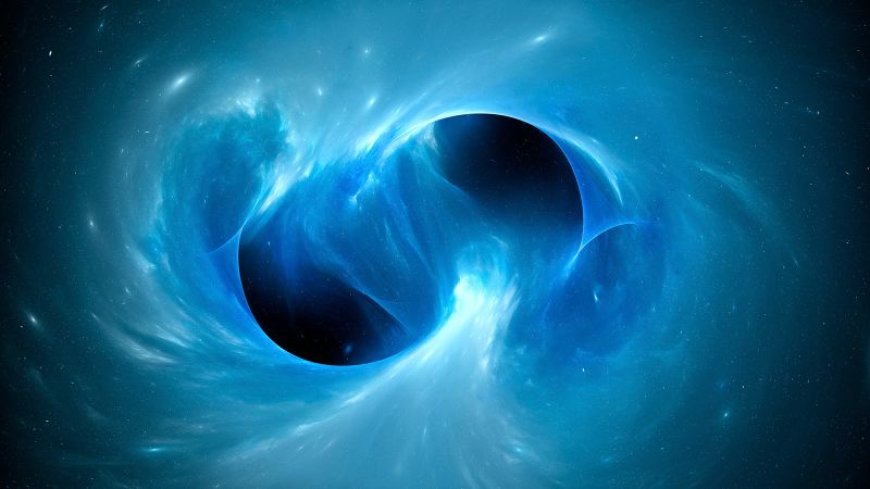Astronomers Discover Largest Black Hole Collision Ever Recorded
Astronomers have observed the largest black hole collision on record, involving two black holes each more massive than a hundred suns. The event, named GW231123, was detected by the Laser Interferometer Gravitational-Wave Observatory (LIGO) and marks a significant milestone in our understanding of the universe.

A collision observed between two black holes, each more massive than a hundred suns, is the largest merger of its kind ever recorded, according to new research.
A team of astronomers discovered the event, dubbed GW231123, when the Laser Interferometer Gravitational-Wave Observatory (LIGO) detected faint ripples in space-time produced by two black holes slamming into each other. Physicists call such ripples gravitational waves.
Gravitational waves were predicted by Albert Einstein in 1915 as part of his theory of relativity. In 2016, LIGO detected them for the first time when black holes collided, proving Einstein right. Since then, LIGO and its sister instruments have picked up signs of about 300 black hole mergers.
GW231123 is exceptional among those mergers, not just because it is the most massive, but also because the black holes involved are spinning almost as fast as physically possible, challenging our understanding of black hole formation.
Gravitational waves are the only way scientists can observe a collision in a binary system where two black holes orbit each other. These waves are incredibly weak, but they provide valuable insights into the universe.
A study suggests that the black holes in GW231123 could be the results of previous mergers, hinting at an unexpected population of black holes that fall between those formed from dying stars and supermassive black holes.
The high-speed spins of the black holes in GW231123 suggest they may have undergone prior mergers, challenging existing models of gravitational wave signals.
This new discovery opens a new window on how black holes can form and grow, showing the rapid progress of gravitational wave astronomy.
Future detections will reveal more about these intriguing systems and whether similar events are common in the universe.
According to the source: CNN.
What's Your Reaction?
 Like
0
Like
0
 Dislike
0
Dislike
0
 Love
0
Love
0
 Funny
0
Funny
0
 Angry
0
Angry
0
 Sad
0
Sad
0
 Wow
0
Wow
0















































































































































































